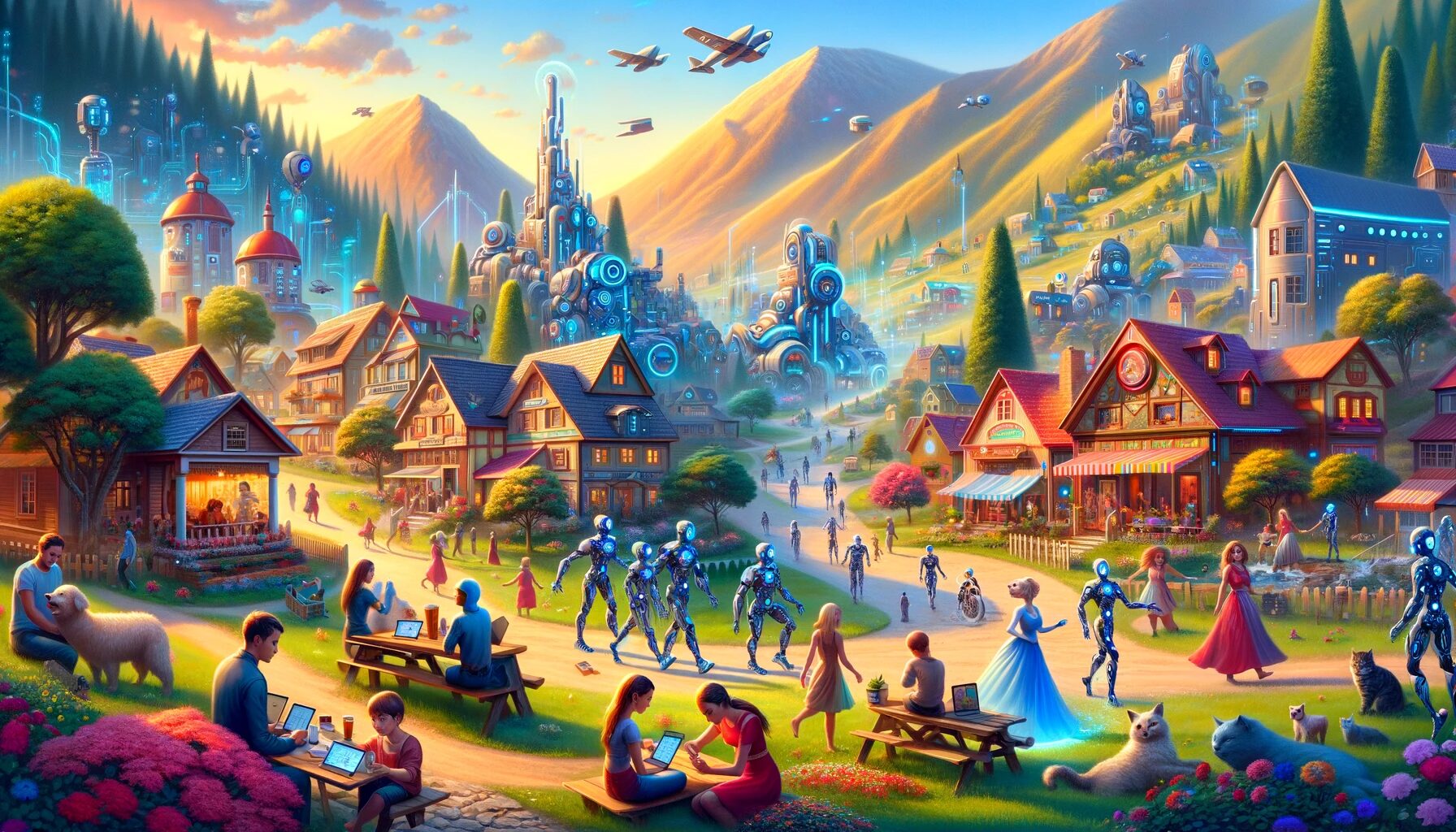In the digital realm where boundaries between reality and simulation blur, Google’s innovative AI-powered agents in the game Smallville mark a significant leap. These agents, equipped with the ability to mimic human behavior dynamically and realistically, herald a new era of interactive gaming and virtual simulations. This blog delves into the intricate world of Smallville, exploring how these AI agents are reshaping our understanding of virtual interactions and the potential they hold for future applications.
Bringing Realism to the Virtual World
Smallville isn’t just a game; it’s a testament to how far AI has come. Here, AI-powered agents go beyond hardcoded scripts, exhibiting human-like behaviors such as planning, reflecting, and interacting in a sandbox environment. These generative agents, with distinct identities, bring Smallville to life, offering a gaming experience where the lines between the virtual and the real are intriguingly blurred.
Simulated Lives, Realistic Routines
Every character in Smallville, like Isabella, leads a life that’s a complex tapestry of actions and interactions, each influencing the game’s environment in nuanced ways. The daily routines of these characters are a marvel of AI’s ability to simulate lifelike behaviors within the digital realm.
A New Dimension of Interaction
Google’s simulation transcends traditional gaming experiences. Agents can form relationships, remember past interactions, and adapt their behavior based on their surroundings and experiences. This dynamic simulation allows characters like Sam and Latoya to develop a relationship, with each encounter enriching their shared history and shaping their future interactions.
Translating Stimuli into Memories
At the core of these agents’ believability is Google’s AI’s proficiency in processing stimuli, translating them into natural language, and storing them as long-term memories. This intricate mechanism ensures that the agents’ behavior isn’t just reactive but also reflective, drawing from past experiences to shape future actions.
Surpassing Human Simulation
In a groundbreaking revelation, Google’s AI-powered agents have demonstrated behaviors more believable than human crowd workers, as evidenced by a study conducted by Stanford and Google researchers. This feat is attributed to the sophisticated addition of reflection, planning, and observation architectures, elevating the agents’ actions beyond mere scripted responses.
Crafting Your Virtual Narrative
Smallville’s immersive experience extends beyond mere observation. Users can delve deep into the virtual world, witnessing intricate conversations and even crafting their own customizable village, thanks to the open-sourced code provided by Google. This feature not only enhances user engagement but also paves the way for creative exploration within the game’s framework.
AI Town: A Sandbox for Innovation
Emerging from the foundation laid by Smallville, AI Town represents a bold stride in AI-powered virtual environments. Powered by Chad GPT, this open-source sandbox MMO RPG serves as a breeding ground for AI research and data generation, with potential applications ranging from enhancing human-AI interactions to simulating complex real-world scenarios for predictive analysis and societal insights.
When Virtuality Mirrors Reality
Reflecting the unpredictable nature of both the virtual and real worlds, a glitch within the game once spiraled into a viral phenomenon, causing widespread chaos akin to a real-life virus outbreak. This incident, while disruptive, underscored the intricate interplay between the game’s elements and served as a poignant reminder of the delicate balance that governs both virtual and real ecosystems.
In conclusion, Google’s foray into AI-powered virtual environments with Smallville and AI Town represents not just a milestone in gaming but a window into the future of human-AI collaboration. As these agents continue to evolve, they promise to unlock unprecedented possibilities, blurring the lines between reality and simulation, and reshaping our interactions within digital spaces.
